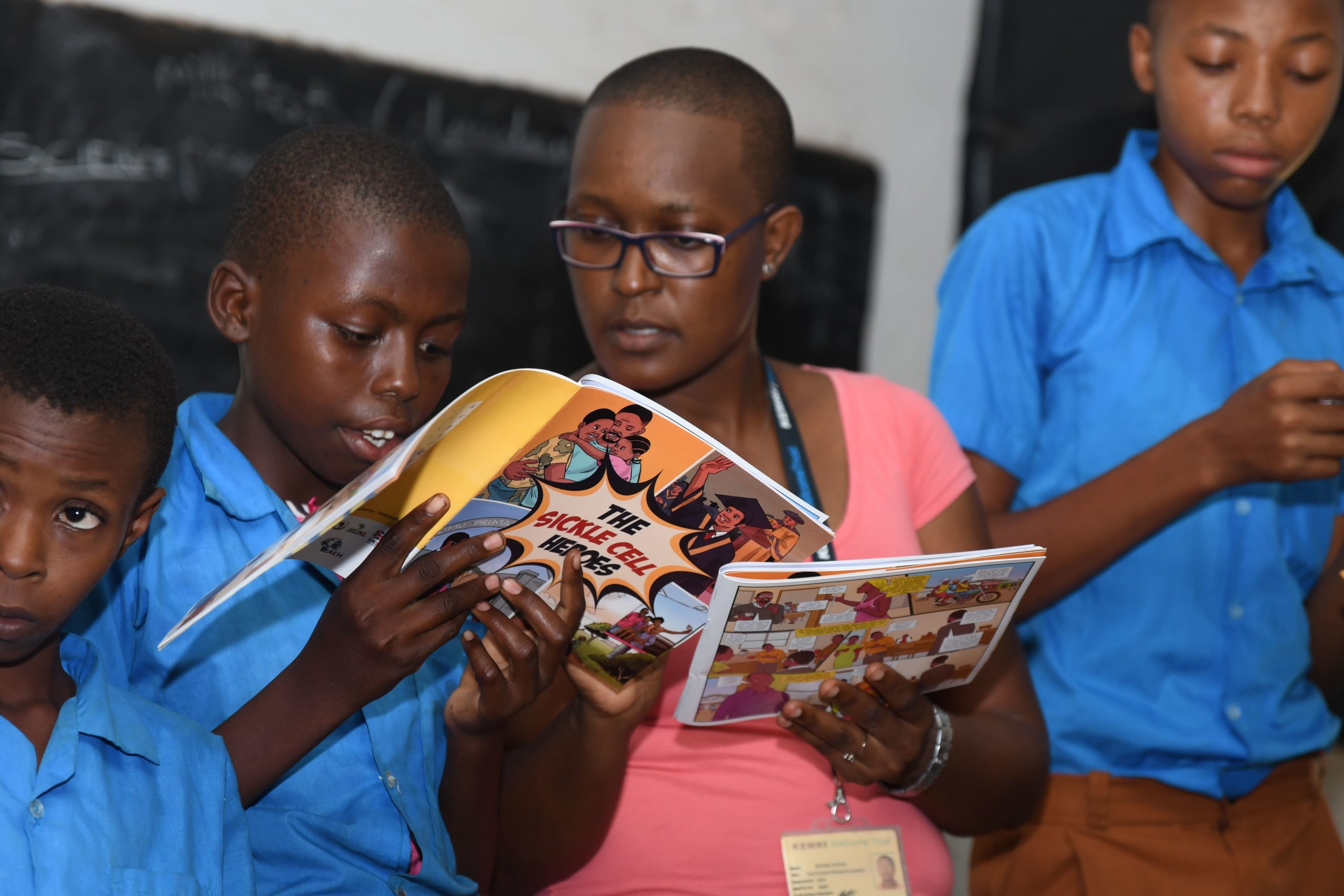 Sickle cell disease (SCD) is an inherited red blood cell disorder that results in the formation of abnormal haemoglobin. In the coastal region of Kenya 1% of the population have sickle cell disease and 15% are carriers. There are often myths and stigma associated with the disease that can result in affected families becoming isolated from their communities and block access to treatment.
Sickle cell disease (SCD) is an inherited red blood cell disorder that results in the formation of abnormal haemoglobin. In the coastal region of Kenya 1% of the population have sickle cell disease and 15% are carriers. There are often myths and stigma associated with the disease that can result in affected families becoming isolated from their communities and block access to treatment.
Dr Sophie Uyoga is a research fellow at KEMRI-Wellcome Trust, with the IDeAL Programme. She is a specialist on sickle cell disease, researching the mechanisms behind the development and treatment of severe anaemia with focus on the role of red blood cell genetics and quality of donor blood on recovery and survival post-transfusion.
In this article, Sophie describes her project, supported by the DELTAS Africa Community and Public Engagement (CPE) Seed Fund, which aimed to share the experiences of families living with sickle cell disease through the development of a comic book.
Sickle cell disease
Over 300,000 children are born with SCD every year, with most births occurring in sub-Saharan Africa (sSA). The clinical consequences of the disease, including anaemia, painful crises, organ failure and infections, put a strain on an already overwhelmed healthcare system. The disease causes early life mortality, with most deaths being caused by preventable illnesses. Survival of children with SCD has improved over the years due to better management and the availability of affordable management therapies as shown by the success of the hydroxyurea trial.
Dr Sophie Uyoga discussing sickle cell disease and the idea behind the project on YouTube
There is currently a lot of scientific research on the disease, but it is important that researchers have a better understanding of what the patients experience, and their views on the on-going research in order to develop a better working relationship with the research participants.
SCD is also associated with stigmatization of the affected families by members of community due to a lack of understanding of the disease and myths that exist around it. Some families do not understand the disease, while others believe it is a curse. Children are treated as weak and bullied. This also results in affected children and their families having a limited understanding of their illness and how they can be supported.
There is therefore a need to share knowledge about the disease and give a voice those affected by sickle cell disease.
The Sickle Cell Heroes project
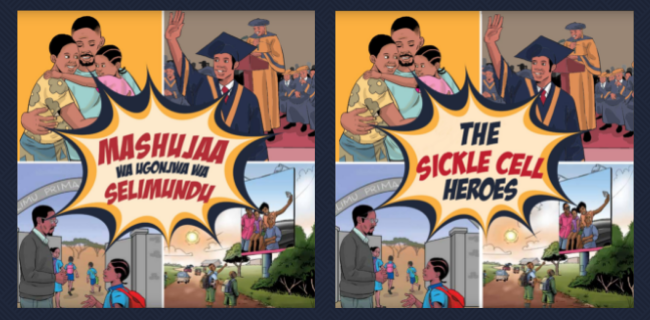
The Sickle Cell Heroes comic book cover in Kiswahili and English
This project aimed to:
- Give scientists an understanding of what research participants go through, hear their stories, and understand how research can be used to improve their lives.
- Create materials that are child friendly for young people to have a better understanding of sickle cell disease.
- Raise the profile of the social issues and challenges faced by people living with SCD and their families.
The engagement project was conducted in Kilifi County along the coast of Kenya, involving 19 SCD patients and 15 parents. We conducted 4 focus group discussions and 7 home visits for in-depth interviews.
What we learned from speaking to children with SCD and their families
Alongside having to manage the treatment for the condition, the those affected face challenges including physical and emotional abuse and stigmatization, in school and at home. The school setup is a harsh environment for children with SCD as some teachers don’t understand the disease and why the children can’t engage in all activities. Some people do not understand the inheritance of the disease, so mothers are singled out as the ones with a problem, even though the gene must from both parents for a child to have SCD.
The children opened up to the research team during the focus group discussions and this highlighted the need for interaction with specialists so children can get answers to questions that they can’t ask their parents.
Producing and publishing the comic book
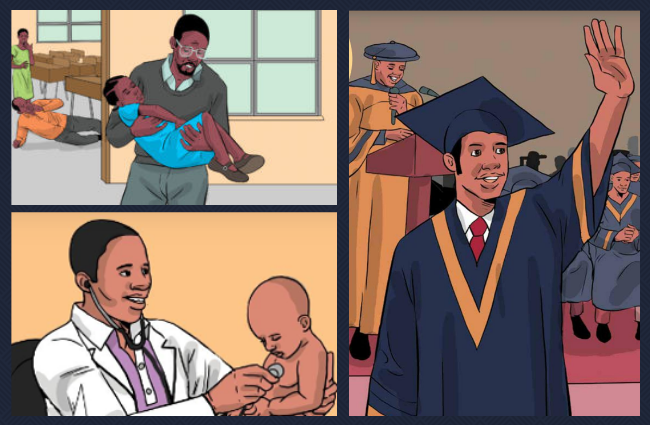 Illustrations in the comic book, inspired by the stories of families affected by SCD
Illustrations in the comic book, inspired by the stories of families affected by SCD
During the focus group sessions, children and their families told us about their experiences of living with SCD.
From these discussions, we evaluated the emerging themes from the experiences of the patients and their families. An illustrator used these themes and developed storylines inspired by real-life events of young people from Kilifi County in Kenya who are living with SCD. The four stories capture the myths, misconceptions as well as the success stories around people living with SCD. Their life experiences reflect the persistent challenges that most children living with sickle cell undergo. The stories were brought together in a 32-page comic book and a colouring book, which were first piloted with the participants for feedback on the storyline and acceptability of content.
The comic book was published in Kiswahili and English and launched on World Sickle Cell Day 2020. Printed copies of the comic book and colouring book were used at the sickle cell clinic and distributed to the community. Digital versions of the comic book were published online.
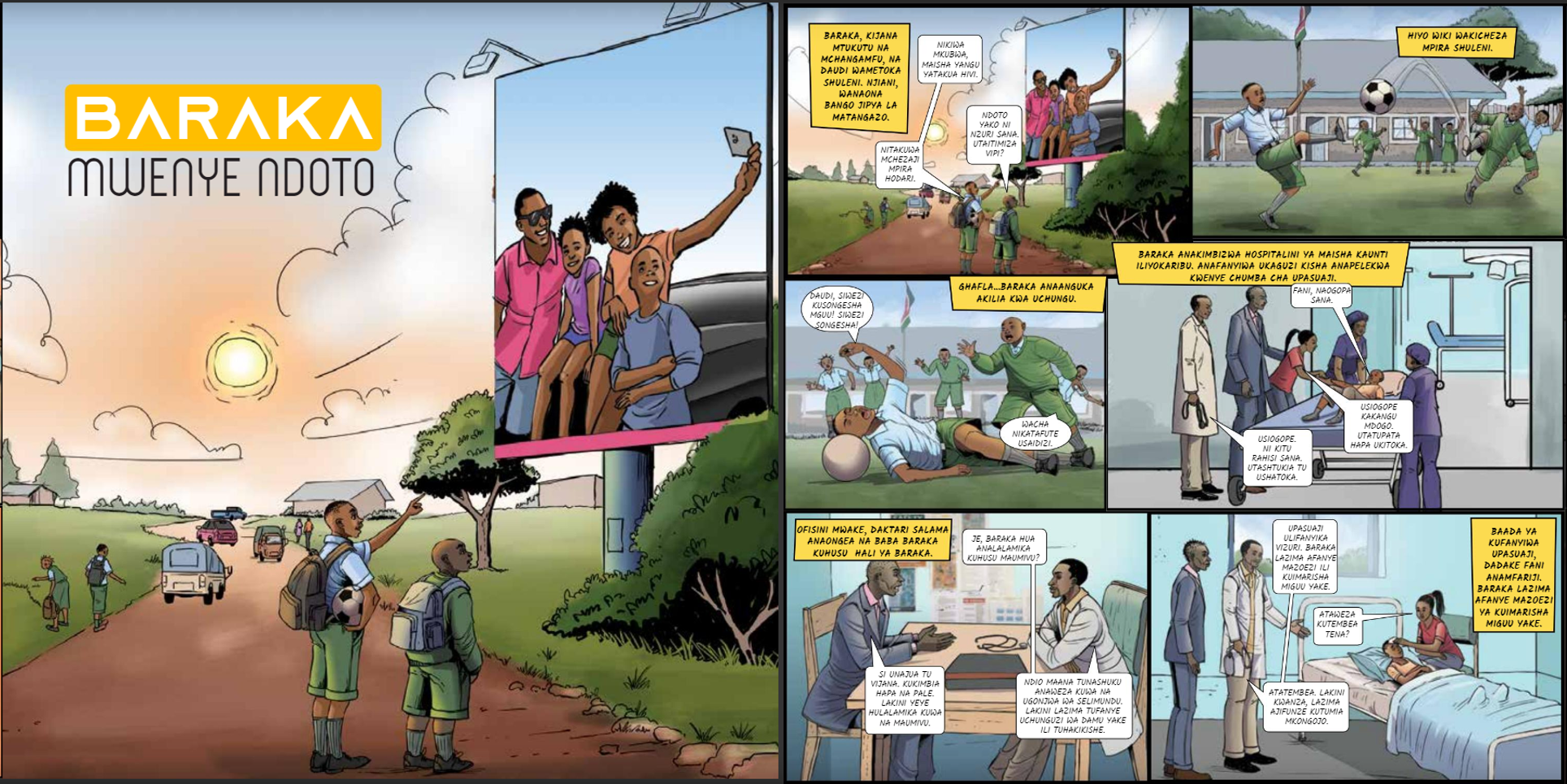 Pages from one of the stories in Kiswahili
Pages from one of the stories in Kiswahili
We conducted two primary school science club activities at schools, which some of the patients attended. We developed a learning package for use by the clubs on blood and sickle cell disease that includes the comic book that will be used for future activities.
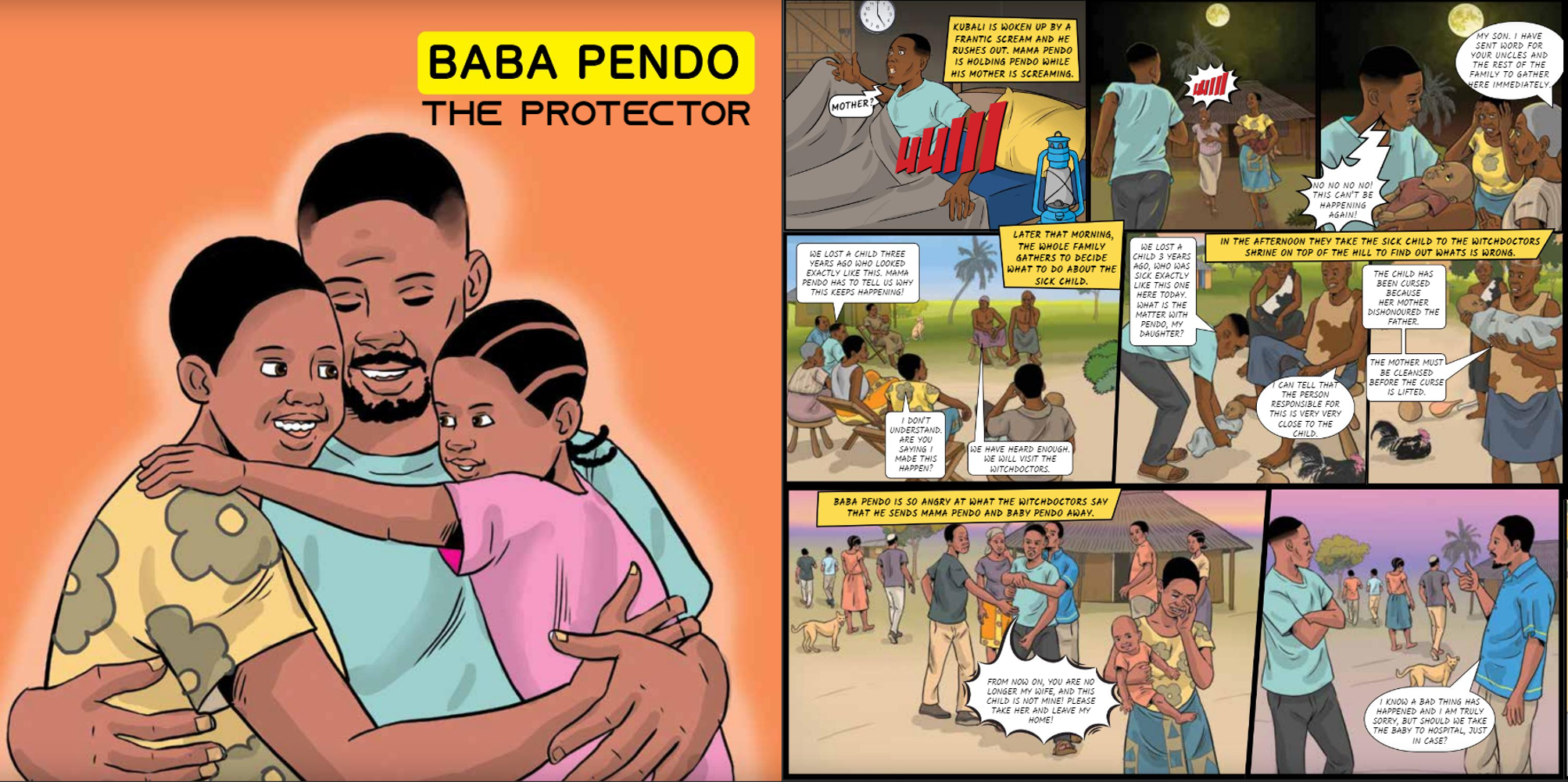 Pages from one of the stories in English
Pages from one of the stories in English
Impact for children with SCD
Reading material for the disease is not locally available, hence this book is the first of its kind. The child-friendly style of communicating about sickle cell disease allows children to understand the disease and helps the community understand challenges faced by children and their caregivers as well as appreciate the role of research in finding better treatments for the disease.
This is the first time the patient’s perspective has been shared. It is written in the local context, hence patients, their parents and the community can relate to the situations and challenges highlighted in the comic book.
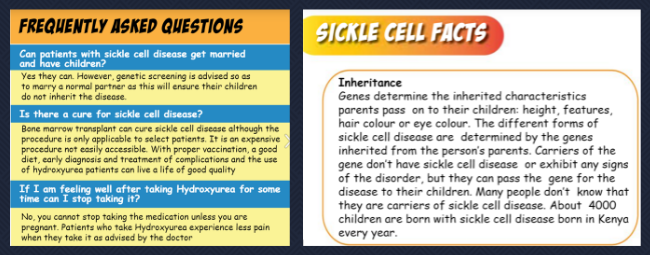
The comic also included facts and FAQs to help communities understand more about SCD
Impact for the researchers and our future work
The engagement activities involved the whole research team and has enhanced our relationship with the patients and their families. We are also keen to continue engagement activities with the clinic attendees and are looking out for potential funding opportunities to support the activities.
We hope to distribute the comic book to all 600+ patients attending the sickle cell clinic in Kilifi County and all children enrolled in the on-going SCD clinical trials at our research sites in Uganda. We also hope to have the comic book translated into other languages used across the African continent.
There is need for more advocacy on sickle cell disease as it is currently a disease of the minority.
Access the Sickle Cell Heroes comic book online in Kiswahili and English
Read more about Dr Uyoga and her research in her Profile in The Lancet Haematology
This report is part of the DELTAS Africa CPE Seed Fund Programme Hub
This work is licensed under a Creative Commons Attribution 4.0 International License


Please Sign in (or Register) to view further.